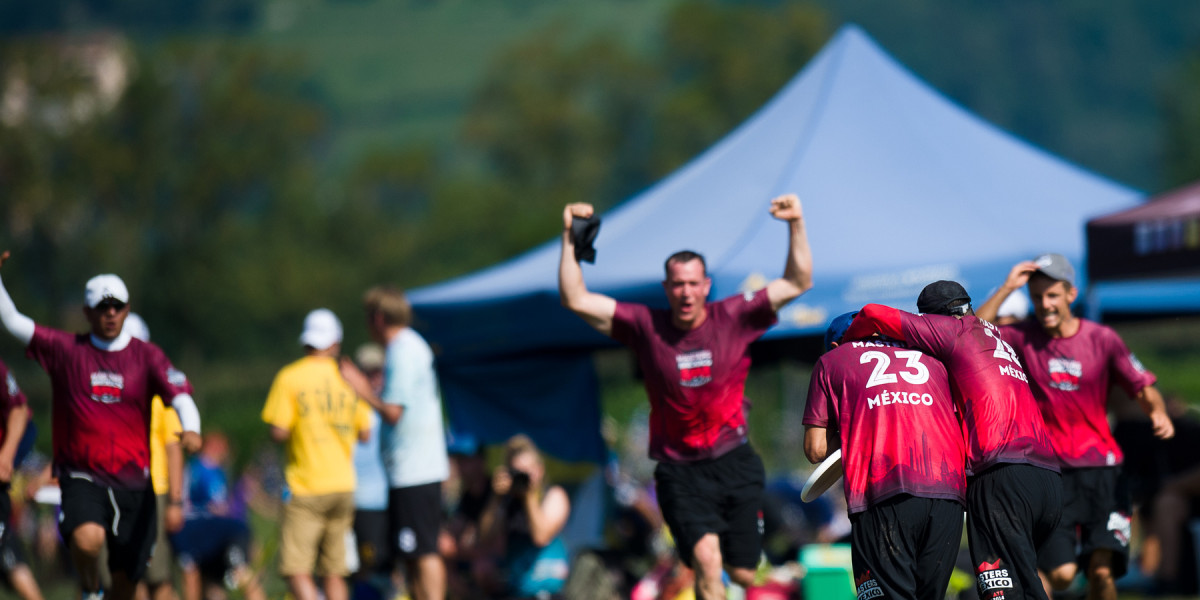 Kevin Leclaire - UltiPhotos.com
Kevin Leclaire - UltiPhotos.com
Here’s the situation: I’m on the sideline coaching Bella Donna at Queen City Tune Up. During the course of one of our games, I walked past two of the assistant-slash-alumnae types, and they were saying really horrible things about some of the rookie players on the field.
Most people who’ve seen ultimate before can tell when someone is uncomfortable with the disc in how they pivot, how they grip the disc, the frightened look of “someone, please, get open immediately!” as they frantically scan the field for a semi-open option for a pass.
Is it really necessary to make fun of a new player so vocally while surrounded by her peers?
My feelings extended beyond what a watchful, protective coach feels for the rookies on her team. It bogged me down for days, and the reason was that those women’s behavior wasn’t unique. I saw it out of lots of teams we played against over the course of the weekend.
On the surface, I began the weekend thinking, “Look at all the people here to support the College Women’s Division! These players, fans, coaches, volunteers, spectators, observers are all here to contribute in one way or another.” But my feeling of being surrounded by hundreds of people tuned into the support needed to cultivate the interest and skills of young female athletes was overshadowed by the negativity came from assistant coaches, alumnae, parents, and players.
It is remarkable how quickly someone or something can totally kill someone’s positive outlook without even trying.
What I can do about it
I coach a team comprised of mostly first and second year players. While I cannot shield them from the loud, hateful comments thrown in their direction, I can take a stance against it.
I had already started drafting my article when I read Calise Cardenas’ incredible article about internet trolls, and the attacks they make on women in ultimate in particular. Someone I admire took the time to write this wonderful prose that perfectly captured my thoughts, and dozens of people commented and built a sort of solidarity. It was followed up by Sam Harkness’ article last week. I felt so empowered in front of my computer screen.
But then, when I remembered my behavior at the tournament, I was numbed to silence.
We would be kidding ourselves if we only focused on the negativity towards women in ultimate, where much of the current conversation settles. It really goes beyond that to include everyone who plays, supports, and contributes to growing ultimate. It happens in other venues, across the board at the club level. I also know that trolling is not limited to our interactions on the internet; it happens on the sidelines and on the field.
The more we resort to elementary school-aged maturity in the way we handle discord on the field, sideline, internet, and media, the more we give the impression that it is okay for anyone to perpetuate. The more disrespect and discontent we show for each other, the more disrespect we get from people “forced to watch this crap” on ESPN3 instead of a “real sport.”
The line between heckling and insults
I get that heckling is inherent to our sport’s culture, but in my experience the best hecklers resort to more clever tactics than, “you’re terrible so you should quit” or “you suck, why do you even play?” The best hecklers are playful, not downright nasty or mean. The teams and athletes in any sport that I most admire are those who celebrate how awesome their teams are without putting their opponents down.
Since our sport is really on the cusp of gaining real attention for being more than some hippie pastime, we need to start conducting ourselves accordingly. What does it say when a player at Nationals yells at an observer, “If I’m right about this rule, then you’re not an observer anymore!?” without any sort of penalty or fine? What does it really accomplish when we turn to our teammate and say, “That girl is terrible. Did you see her pivot?” and re-enact her form while making doofy animal grunting noises on the sideline for 20+ people to see?
If we as athletes want others to treat us with respect and see us as “real athletes,” then we need to start doing the same, regardless of gender, division, day of the week or any other thing that might factor into how we interact. It is not just the way we write about ultimate on public comment sections or engage in dialogues on internet forums. It extends to how we actually interact with each other on the field and on the sideline. We need to stop setting ourselves back. It is not just about how we treat women in ultimate. It’s about how we treat everyone in ultimate.









Comments Policy: At Skyd, we value all legitimate contributions to the discussion of ultimate. However, please ensure your input is respectful. Hateful, slanderous, or disrespectful comments will be deleted. For grammatical, factual, and typographic errors, instead of leaving a comment, please e-mail our editors directly at editors [at] skydmagazine.com.